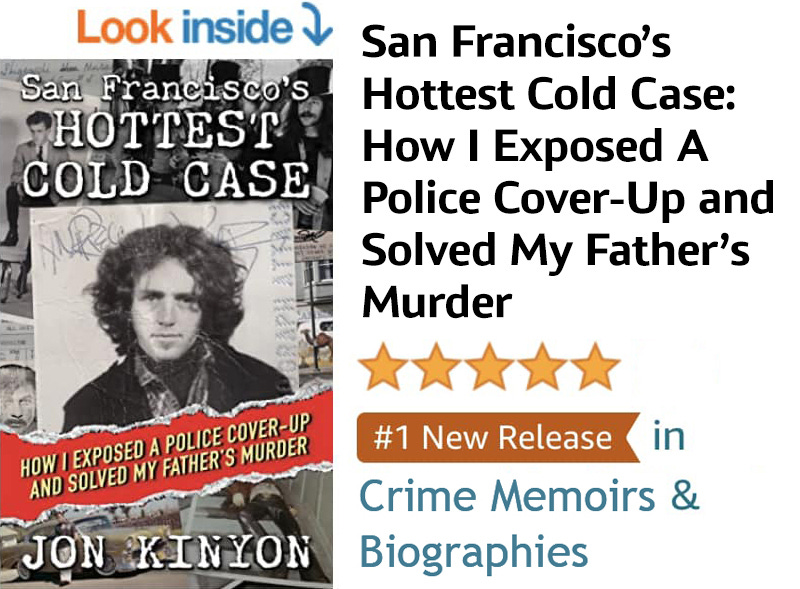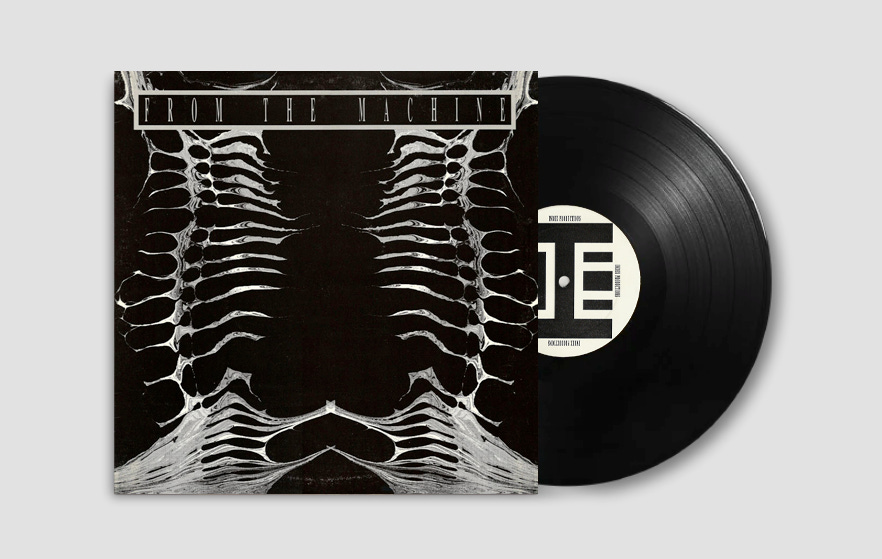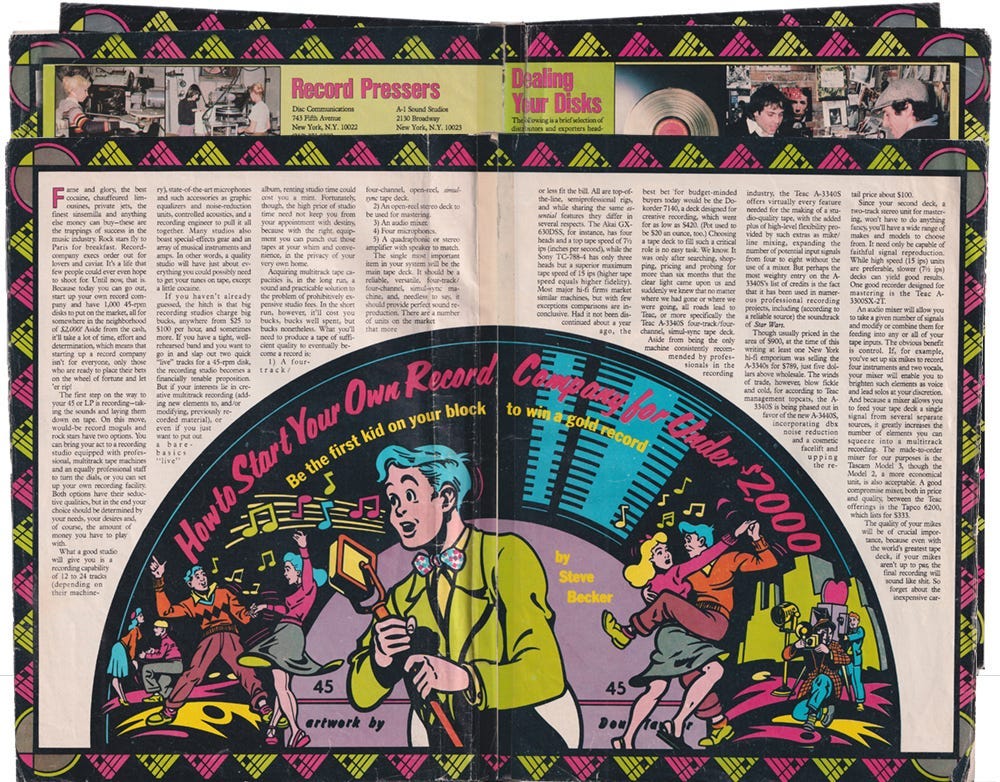How to Start Your Own Record Company for Under $2,000
Or "How to Lose Friends and Make Enemies"
AGES AGO, WHEN I was still navigating the halls of high school, I stumbled onto a High Times magazine article that fired my imagination: “How to Start Your Own Record Company for Under $2,000.” Believe it or not, I’ve still got that dog-eared issue stashed in my file cabinet more than four decades later.
At the time, I’d been on the hunt for a legit entrepreneurial business I could dive into once I hit 18. I was desperate to leave behind the drug dealing life, fearing that I would end up in jail or prison. My stepdad's grim tales were more than enough to scare me straight. I’d been casting about for something, anything, to latch onto, and then that article hit me like a bolt of lightning. It broke down how a few gutsy trailblazers had kicked off alternative record labels, a bold move in those pre-1980s days before the indie explosion, which didn’t become a major trend until the 1990s.—some of which, I’d bet, owed a nod to that very piece.
I sat down and began dreaming up names for my label and mocking up logo after logo. I settled on Stacked Records, based on a sketch I did of a busty woman (what we’d call “stacked” in those days) surrounded by stacks of vinyl records. Hey! C’mon! Cut me some slack–I was a teenage guy with hormones in overdrive and a one-track mind. And, yeah, it was corny as fuck, but I never have claimed that all of my ideas are solid gold.
After I moved out on my own and landed a steady day job, I set out to find a band or two to record. It turned out to be far trickier than I had imagined. Bands with starry-eyed dreams of hitting it big thought I was a nutjob. They were all holding out for a golden ticket from a major label, no matter how much I hyped the indie route, they weren’t buying it. I was ahead of the curve, and they couldn’t see it yet. (Note: my uncle Bobby Allen owned the largest band rehearsal complex between San Francisco and San Jose at the time–AML Studios in East Palo Alto–and I had access to more than 100 bands).
So, I pivoted. I started attending songwriting and music publishing workshops, then signed up for night classes at the local community college. I took courses in business and music, learned piano, and got the hang of reading sheet music. Singing? It never was my thing, in fact, I thought I was a horrendous singer, but I enrolled in a vocal class anyway. Like most folks, I was terrified of performing in front of people, and I figured it was time to tackle that fear head-on.
First day of vocal class, I stepped out on stage and chose “Summertime.” I’d never sung it; I had only heard Janis Joplin’s take. The instructor sat at the piano and gave me the cue. I started in, and after the first verse, he stopped to compliment my “natural singing.” Then, after class, a girl walked over and said, “You have a lovely tenor voice; you should really think of pursuing a singing career!” I was so surprised by their reactions that it was hard to accept the compliments.
I put out eight comedy-rock tracks on cassette, paired with a 24-page underground comic book I’d drawn and printed myself. I got them into Comics & Comix, the big shop in my hometown, and a handful of headshops across Northern California.
At that time, I thought I’d try my hand at writing and selling songs. People made a living that way, and I had a little too much fun penning lyrics—why not me? Eventually, I assembled a group of studio musicians and began recording demos to shop around. I also began to toy around with the idea of writing a novelty song or parody, aiming for a shot on Dr. Demento's syndicated radio show (where Weird Al had recently gotten his big break).
In 1984, I put out eight comedy-rock tracks on cassette, paired with a 24-page underground comic book I’d drawn and printed myself. I got them into Comics & Comix, the big shop in my hometown, and a handful of headshops across Northern California. They just about sold out when a freak fire at the comic store wiped out what was left. Life was hectic at the time; I’d just jumped from a Silicon Valley tech gig to TV production. With no time to push the novelty music, the whole thing fizzled out.
In 1987 and ’88, I was deep into a sketch-comedy TV project I created. I filmed over a dozen short bits and stitched together a pilot. And I again wrote and recorded a few original comedy songs. The standout was the theme song for Bon Bon the Voodoo Clown’s “House of Voodoo: The Black Magic Show for Kids!” Bon Bon was the enigmatic host teaching kids the dark arts, only for every spell to hilariously backfire and blow up in his face.
In 1989, I attempted to launch a viral video campaign among people in the industry, making VHS copies of “Wasteland Television” available to anyone who would grab one. This was a full six years before South Park had success with their “Spirit of Christmas” viral VHS stunt in 1995.
I pressed 1,000 7-inch vinyl copies of the Bon Bon The Voodoo Clown theme song and got them distributed to Tower Records stores. I did in-person appearances as Bon Bon at the Mountain View location, and on Halloween, they had my song in rotation on the in-store playlist. I got the record played on KZSU, Stanford University’s radio station, and sent a copy to the Dr. Demento show. I don’t know if he ever played it. I was never notified or heard it play.
[My biggest success with that project was the Voodoo Clown t-shirt I designed. They sold like hotcakes. A few stores, especially Paramount Imports in San Jose, couldn’t keep enough of them in stock. They were sold out whenever I swung by to collect a check.]
With that project under my belt, I decided to resurrect my dream of running an indie record label. By then, others had cracked the code, and it felt like the stars were finally aligning. Wax Trax! Records out of Chicago was dominating college radio and the new Industrial music scene, which had begun to explode in San Francisco and the Bay Area. The energy was electric—new bands were popping up everywhere, goth and industrial clubs were multiplying, and distributors were itching for fresh indie product. I knew I had to move quick.
I constructed a solid business plan for my Industrial-centered label and started the grueling hunt for backers. My kickoff project? A compilation album spotlighting the top unsigned bands in the San Francisco scene—none of them had been scooped up by a label yet, and I was dead-set on being the first. My plan was clear from the start: Pick the standout act from the batch and follow up the compilation record with a debut album from the group I saw as the city’s very best.
After some tough lessons from past ventures, I realized going solo wasn’t the answer. Trying to be a one-man show had failed before, and it wouldn’t cut it this time around. I needed backup, possibly a small crew. I couldn’t afford to hire anyone, but with a tight plan and a shot at something big, I figured I could rope in a believer or two.
Coincidentally, an old high school friend, Donny, was in a bad spot—homeless, cut off by his folks. My mom took pity and let him crash on her couch. When I laid out my label plan, he jumped all over it, eager to get involved. I wasn’t sold at first; we’d clashed back in the day, and I wondered if he still held a grudge. But the idea grew on me.
Donny had a few things going for him.
1) He was fine working free at first for a cut later.
2) He was an OK salesman with a gift of gab.
3) He was a genuine music buff and in the Industrial music scene.
Finding that mix in someone else would’ve been tough, and I couldn’t waste a second. Speed was everything. Things took off so quickly I skipped the paperwork—just a handshake deal that I’d consider making him a partner down the line, tossing out a possible 25% slice to him if we hit pay dirt. I’d hold 50% and save 25% for financial backers.
He enthusiastically agreed.
The true gem we uncovered was Switchblade Symphony, a group formed only a month before we crossed paths. Their demo blew me away—goth-industrial tracks with gorgeous, haunting, operatic vocals that gave you chills.
Donny landed a spot on a San Francisco couch and stepped up as my A&R guy, connecting with bands. He hit it off with club DJs and promoters like “Zone Six” and “Guts ‘N Bolts.” In just two weeks, we had a stack of about two dozen demo tapes. I picked the bands for the album, chose the tracks, and decided on the song order. On weekends, I’d drive up and hold court at spots like The Underground, where everyone knew me as the label boss.
The true gem we uncovered was Switchblade Symphony, a group formed only a month before we crossed paths. Their demo blew me away—goth-industrial tracks with gorgeous, haunting, operatic vocals that gave you chills. I had to meet them the second I heard it. Tina and Susan, the two ladies behind it, were a blast—sweet, always laughing, totally down-to-earth. They had the most talent of anyone we found, yet were the most humble.
Most of the bands I picked had polished, fully produced songs ready to go, slashing the need for studio time and keeping startup costs low. Then, Switchblade Symphony lucked into an engineer who recorded their track “Mine Eyes” for free. Even so, I was still scrambling to scrape together the money to master the record and press the vinyl.
Out of nowhere, Donny started hassling me, pushing hard for 50% ownership of the company. His timing couldn’t have been worse, and his attitude really pissed me off. We hadn’t secured the funds yet, the project was still up in the air, and he was demanding I hand over half of a business I’d been building, off and on, for a decade—my dream, one I’d started and steered from day one. Half for him didn’t add up, and it left me with nothing to offer potential backers.
Then Donny started dodging me, ignoring my calls. It got me second-guessing myself. Was I being unfair? Too hardheaded? I took a step back and decided the priority was getting that compilation album finished—without it, the company was dead in the water. I left him a voicemail: “Look, if we pull off this record, you’ve got 50%—I’ll put it on paper. Until then, the company’s just talk, right? Hit me back, let’s meet and finish this thing.”
I never heard from him.
I didn’t know how to react—well, I knew what I wanted to do: Crash the station and choke the bastard out live on The Joe Radio Show.
Three weeks later, I flipped on Joe Radio’s Industrial music show on KZSU and caught DJ Ed Klein hyping up Switchblade Symphony, Grotus, and a few other bands. They were all there in the studio to toast the release of “From the Machine,” the first San Francisco Industrial music compilation dropped by a brand new indie label.
It hit me like a punch to the gut—everything froze. The world stopped turning.
I didn’t know how to react—well, I knew what I wanted to do: Crash the station and choke the bastard out live on The Joe Radio Show.
They spun track after track from the album, joking around and celebrating between songs. The bands kept thanking Donny, calling the album an “amazing gift” to them and the entire world, piling on praise, calling him “a genius,” “a visionary,” the works. When they opened the phone lines for listeners to ask questions, I dialed in first. The second they knew it was me, they cut me off the air and handed the phone to Donny.
“Hey man, it’s Jon. You know, Jon Kinyon, the guy who dreamed up this whole compilation thing.”
He stumbled over his words—something he never did—mubbling about how he found an investor and claiming he’d put in more work than me on the project. “So why shouldn’t I take it over?” he asked. I laid out exactly why that didn’t fly. Then he came back with, “Look, I’ve got nothing. Ok? This is my one big break, my shot in life. You’ve got tons of ideas, your career, that clown show that everyone’s into.”
“So that justifies screwing me over and stealing my business?” I shot back.
“Yeah,” he muttered, letting out a long sigh before hanging up.
All summer, I’d crack open the S.F. Chronicle and see ads for live shows hyping performances by “Bands from the From the Machine compilation, out on Index Records!” I had to swear off college radio for a year to dodge hearing tracks off of what would have been the first album by my record company.
It took a couple of years, but a silver lining appeared in the shit-storm clouds.
Word on the street was that Donny followed my business plan as his playbook. Still, he fell into the exact same trap I had: Riding high off the success of the compilation and promoting shows, he funded studio recordings for Switchblade Symphony with money he inherited after his mom died—without a scrap of paper to lock it down. There was a disagreement of some kind, a falling out, and the band took those tracks, inked a deal with Cleopatra Records, then rode off to bigger and better things. Donny ended up with zilch to show for betraying me.
Karma is a bitch.
Switchblade Symphony’s most popular song, arguably, was “Clown.” Which I believe was inspired, at least in part, by my Bon Bon the Voodoo Clown character. Like two little girls, I can still see them sitting on the floor in front of the television, joyously soaking in the first episode of the Black Magic Show for Kids! and laughing hysterically. A year later, the song was floating around:
FROM THE MACHINE by SON OF ZODIAC
Two years after being ripped off, I moved to San Francisco and started an Industrial band with two other guys. We recorded a bunch of songs and shopped them around, but the band split up before we really had a chance. One of the songs I wrote was about Donny and the album project he stole from me:

⭐⭐⭐⭐⭐ "I am an avid reader of mob and true crime novels. This is one of the best I have ever read." - Amazon review
⭐⭐⭐⭐⭐ "What a page turner! This story is an amazing piece of investigative work—both compelling and heartbreaking." - Amazon review
⭐⭐⭐⭐⭐ “I’d seen the author’s work in OZY but was blown away by this book. It’s SUCH a great read, written from the heart! Full of interest for those historians of the hippie generation, North Beach, corrupt cops, mobbed up pols, and San Francisco in general. Very well written and paced up to the last pages. Truth is indeed stranger than fiction. Buy this book now!" - Amazon review






